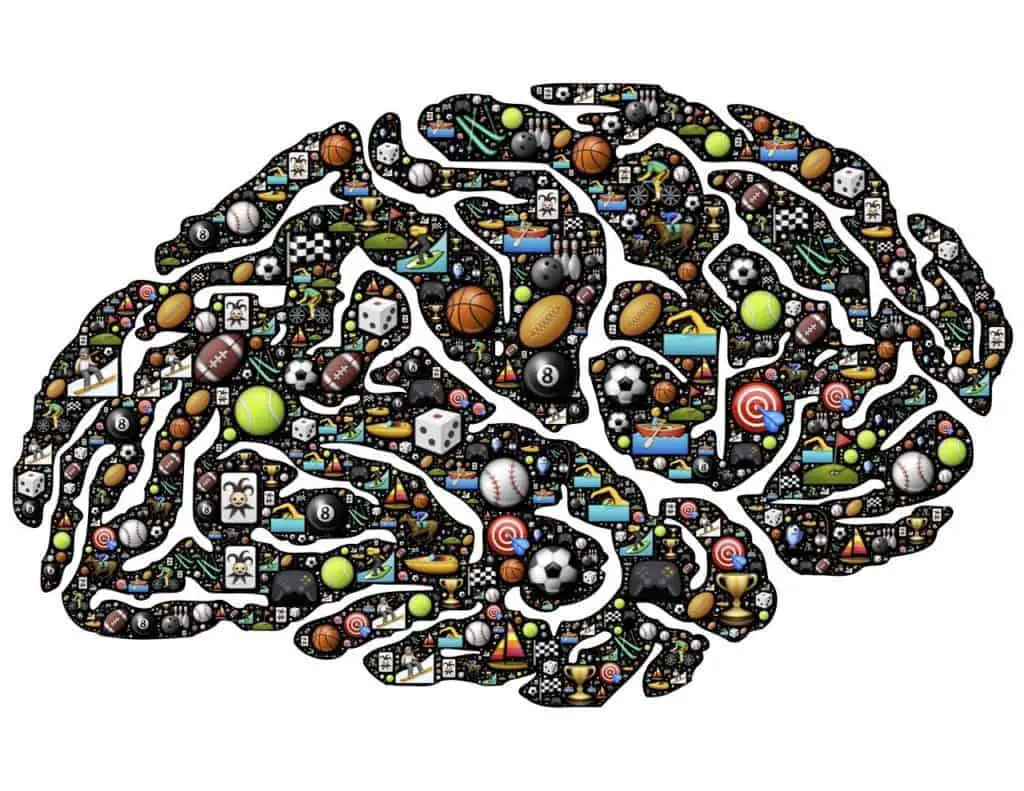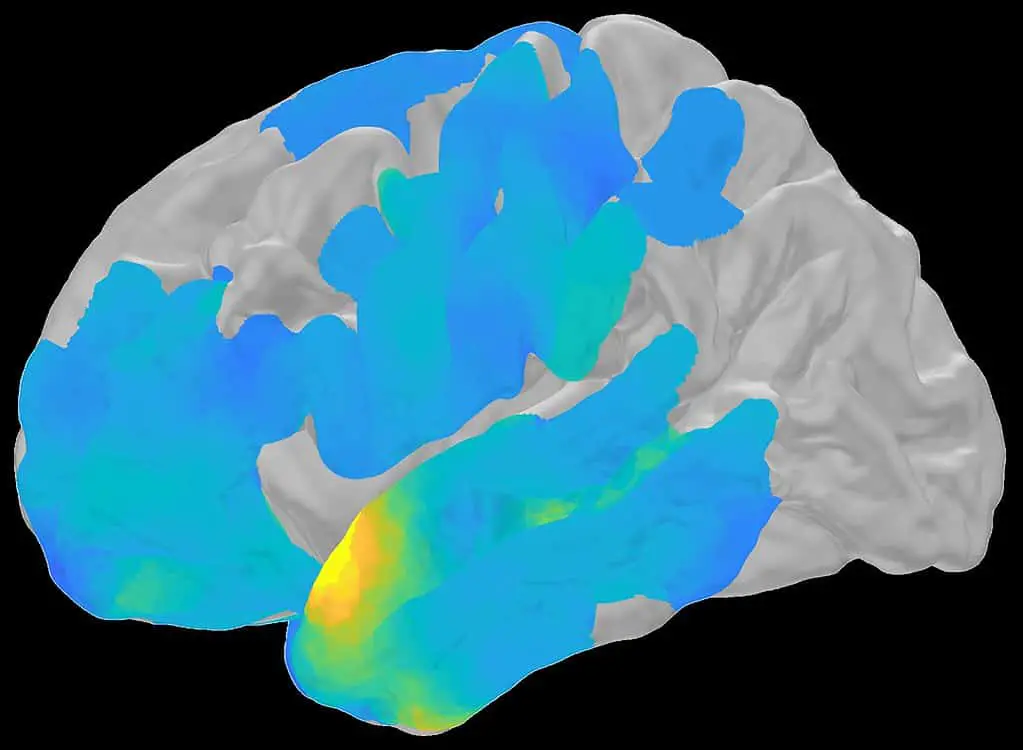Music is everywhere in our daily life. We listen to our favorite songs when we feel stressed or when we simply want to relax. Listening to music also causes the brain to release dopamine, which triggers feelings of euphoria. Music is also believed to improve memory.
Does Music Improve Memory?

Music is an example of a mnemonic or memory device. The frontal cortex and hippocampus take in a large amount of information every minute, and they are associated with memory. Retrieving information, however, is not easy. Music helps by providing a rhythm, rhyme, and alliteration, which helps retrieve that piece of information with cues. The melody, the images that the lyrics evoke, and the structure of the song helps us remember.
Repetition is important when we want to recall something. The brain encodes information into electrical impulses, which trigger chemicals that convey information from one brain cell to another. These connections are known as synapses. We can’t recall some information because the brain was not able to encode it. Repetition creates more synapses, which helps form the memory deeply in the brain.
Experience or information that involves different senses creates various chemical and electrical triggers in the brain. The more brain triggers created, the stronger our immediate perception will be. That experience or information will become a short-term memory. This is one of the reasons why it is easier to recall song lyrics than to deliver a poem. It’s also easier to recall song lyrics if you hear the music playing because the brain is retrieving various sensory signals.
If anything interferes with these connections, the brain may have trouble creating and holding memories. Anything that facilitates these connections improves your ability to recall something.
How does music improve memory?
The general conjecture is that certain kinds of music leave the brain more open and capable of encoding our experiences or information. A 2015 study evaluated various kinds of sounds that evoke different reactions. They performed a face recall test on participants who were listening to emotionally touching music, rainfall, or joyful music. They also monitored the blood pressure and heart rate of the participants.

Those who listened to touching music performed best in the test. They also had a higher heart rate compared to the other groups. The researchers believed that touching music alters a person’s visual insight of faces by combining facial properties with music. This leads to deeper memory encoding.
How does music therapy affect our memory
Music is used as a form of therapy for those with Alzheimer’s or Dementia. Activities can include improvising, composing, performing, or listening to a musical piece. Music therapy is also believed to stimulate the remote memory. This kind of therapy is best applied in the early stages of Alzheimer’s, where the patient is capable of communicating their personal choice in music.
What Kind of Music Improves Memory? (And other benefits)
- Nature Music
Nature sounds can help improve concentration and cognitive function. Listening to nature sounds can also improve mood. Look for soothing sounds like rainfall, ocean waves, water fountain, and flowing water. Bird calls and other loud sounds can be distracting. Nature sounds can mask more distracting sounds like people talking.
- Classical Music
Researchers believe that listening to classical music can boost brain activity and, thus, help improve well-being and health. This theory is called the Mozart Effect. Various studies have revealed that listening to classical music improves a person’s capability to solve spatial puzzles and manipulate shapes.
Songs with lyrics are distracting when you are trying to concentrate. Classical music, on the other hand, lacks words. This kind of music is known for being soothing. It’s also used for stress reduction and boosting productivity. Try listening to Beethoven, Mozart, and Vivaldi’s compositions.
- Favorite Music
Listening to your favorite music can improve your productivity and mood. Studies have found that those who listened to their preferred music presented better ideas and completed tasks faster than those who didn’t.
- Cinematic Music
Cinematic music scores can brighten your mood and make you feel like you are doing something really important. Cinematic music can make even the most boring tasks exciting. This can boost your productivity and focus. If you are feeling exhausted, consider listening to an intense film score to lift your spirits.
- Music with 50 BPM to 80 BPM
Studies have discovered that music with 50 BPM and 80 BPM can stimulate and improve learning and creativity as it induces an alpha state of mind. When you are awake, your brain is in a beta state. Beta brain wave activity is between 14 Hz and 30 Hz and associated with a heightened state of alertness, critical reasoning, and logic.
The brain wave activity in an alpha state of mind is between 7 Hz and 14 Hz. It allows you to be less critical and more open and receptive. Scientists associate the alpha state of mind with activities that involve memory, intuition, and imagination.
Songs with 50 BPM and 80 BPM include Adele’s Chasing Pavements, Justin Timberlake’s Mirrors, and Jeff Buckley’s Last Goodbye.
- Video Game Music
Video game music is moderately fast-paced and has no human voices or lyrics. This kind of music is composed in a manner that keeps players engaged as they navigate and evaluate the video game world. Video game music helps players focus on the task without being overwhelmed or distracted by various sounds. Assassin’s Creed 2, Battlefield One, Halo, and Final Fantasy 7 have some of the best video game music.
Music for children and teachers
Music can be used to help children retain information. Sounds can help stimulate visual images and evoke emotions. Different types of music are appropriate for various kinds of activities. For example, listening to instrumental music when reading, studying, or writing can help maintain concentration. Slower music can help one relax, while upbeat music can stimulate a tired mind.
There are various ways to use music to improve a child’s learning experience. Children memorize more effectively through rhyme and rhythm. Encourage them to change the lyrics of their favorite song into words related to what they’re learning. Raps and chants make it easier to retrieve the information later.
You can also incorporate music in visual aids to improve their memory. For instance, you can explain a subject while some classical music is playing in the background. Use a dry-erase board to create diagrams, symbols, or anything they can connect to the topic. Show the same images and play the same song in the next tutoring session.
Another way to incorporate music in your tutoring session is by using the bass to make them remember verbs. Encourage them to explain how the song makes them feel. Rap music has a lot of verbs, but make sure to find a clean song that can be shared with children.
You can also take them on a nature walk and ask them to write a poem or short story. Let them brainstorm ideas. Go back and play nature sounds. Give them at least 15 minutes to recall and write down their ideas. You can also let them go on a nature walk while listening to their favorite song. Encourage them to absorb the lyrics of the song. When they come back and replay the songs, it will jog their memory and inspire them to write a poem or short story.
Playing reflective, soothing music while verbally leading them on a learning journey can also help improve their memory. For example, you can read an article about the ecosystem, while some meditative music plays in the background.
Other music advantages
Music can also reduce anxiety or stress. According to research, about 70% to 90% of individuals in the late stages of Alzheimer’s disease or Dementia are affected by some form of anxiety. Playing the patient’s favorite song can help reduce anxiety and improve mood, cognition, interaction, and motor. These reactions require little to no processing in the brain and don’t involve cognitive function. Light jazz, nature sounds, flutes, classical music, drums, and Indian stringed-instruments can help reduce stress.
Music can also engage patients with Alzheimer’s and their families. The patient slowly loses his ability to express emotions to his loved ones. Listening to music can motivate them to move around, which can result in physical affection like touching, hugs, and kisses. These cues may bring back emotions and memories. Listening to music can also make tasks more enjoyable for the patient and his loved ones or caregiver. Dancing to their favorite songs can put them in a good mood.
Music can also help the patient, and their loved one communicate better. Caring for someone who has lost his ability to communicate verbally can be exhausting. Playing music for them can help them remember emotions and use them to communicate.
Conclusion
Music represents emotion, vision, movement, and language. It can reduce stress and improve mood as well as memory. Certain genres are more powerful in stimulating brain activity. For instance, classical music can improve one’s ability to retain information and focus. Music is also being used as a form of therapy for those with Alzheimer’s. It stimulates remote memory, which helps reduce confusion within the patient’s immediate environment.
If you enjoyed this article check out my other articles on video games, and do they improve memory?
Sources and interesting resources
https://www.huffingtonpost.com/rita-altman-rn/music-and-memory_b_3639805.html
https://www.alzheimers.net/2014-07-21/why-music-boosts-brain-activity-in-dementia-patients/
http://braintest.com/does-music-enhance-memory-and-brain-activity/
https://www.scienceofpeople.com/scientific-benefits-music/
http://www.cerebromente.org.br/n15/mente/musica.html
https://www.ncbi.nlm.nih.gov/pmc/articles/PMC5267457/
https://www.ncbi.nlm.nih.gov/pmc/articles/PMC4606564/
https://academic.oup.com/scan/article/11/6/884/2223400
https://www.sciencedirect.com/science/article/pii/S0079612318300098?via%3Dihub
